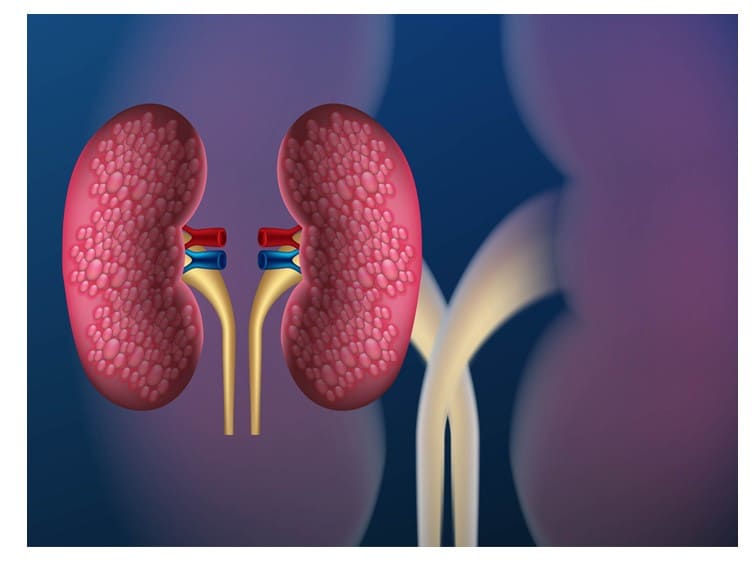Diabetic kidney disease risk | Dr. Kavitha Gone Explains
Diabetes is the major cause of kidney disease. One in every three adults with diabetes has kidney disease. Diabetes-induced kidney damage and kidney disease occur slowly over many years. Having diabetes for a longer time increases the chances that you will have kidney damage. Protect your kidneys by keeping your blood glucose under control.
What is diabetic kidney disease?
Diabetes cause kidney disease – which is known as diabetic kidney disease. Diabetes leads to kidney damage over a period of time. Damaged kidneys cannot filter blood as they should. When kidneys cannot function properly due to the damage caused by diabetes, wastes accumulate in the body. Kidney disease can also cause other health issues.
How does diabetes cause kidney disease?
Diabetic kidney disease risk: Excess blood sugar levels or blood glucose can damage blood vessels in the kidneys – and therefore, they don’t work properly and lead to kidney disease. Diabetes can also lead to high blood pressure – which can also damage the kidneys.
What increases my chances of developing diabetic kidney disease?
Diabetic kidney disease risk: If you have diabetes for a long period of time, then your risk of kidney damage increases. In addition, your risk of developing kidney disease increases with diabetes if you have high blood pressure and high blood glucose levels.
Furthermore, the risk of developing kidney disease increases if you have diabetes and you are obese, and lead a sedentary lifestyle. You will also be at risk if you smoke, eat foods high in salt, and don’t follow your diabetes eating plan. Having heart disease and a strong family history of kidney disease can also increase your risk of diabetic kidney disease.
How can I tell if I have diabetic kidney disease?
As with many people, you may not have symptoms of diabetic kidney disease. The only way to know whether you have diabetic kidney disease is to get tested.
Nephrologists recommend urine and blood tests to check for diabetic kidney disease. They order a urine test to check the urine for albumin and a blood test to evaluate how well your kidneys are filtering your blood.
How can I keep my kidneys healthy if I have diabetes?
Set your goals related to blood glucose and blood pressure and try to reach those goals. This is the best way to prevent or slow diabetes-related kidney disease. To achieve your goals and improve your overall health, adopt healthy lifestyle habits and take your medicines as prescribed by your doctor.
Reach your numbers – The blood glucose goals
HbA1C – This blood test shows the average blood glucose levels over the past three months. This test is different from the regular blood glucose tests that you do yourself. Your doctor orders this test to check your Hb A1C levels over the past three months. If your HbA1C numbers are higher, the higher your blood glucose levels have been during the past 3 months.
The goal – keep your Hb A1C numbers below 7 percent if you have diabetes. You can ask your nephrologist about your goal. Reaching your goal numbers will help you protect your kidneys.
Manage your blood pressure
Do you know high blood pressure can increase your risk of heart attack, kidney disease, and stroke? It can also put additional pressure on your heart to work harder.
Set blood pressure goal – people with diabetes should have blood pressure below 140/ 90 mm HG. Controlling blood pressure helps protect the kidneys by preventing kidney disease. Blood pressure-lowering medicines will also help.
Adopt healthy habits
Develop or maintain healthy lifestyle habits. To reach your ideal blood glucose and blood pressure goals, adopt healthy lifestyle. To keep your kidneys healthy, follow the steps below:
- Maintain a healthy weight
- Involve in any physical activity
- Stop smoking
- Limit salt and avoid sugar – work with your dietitian to develop a healthy meal plan
- Take rest and destress yourself
- Get sound sleep – ideal should be around 7 to 8 hours each night.
- Take medicines as prescribed by your doctor
Medicines may be an integral part of your treatment plan
Medicines can help you meet your blood sugar and blood pressure goals.
How can I cope with the stress of managing my diabetes?
Stress management should become a major part of your life because diabetes management is not easy. When you have diabetes, you may feel stress, anger, and mood swings. Though you may have goals and plans set, sticking with the plan becomes difficult. Stress can also increase your blood glucose and blood pressure. However, there are many ways to lower your stress levels. Indulge in any hobby, yoga, meditation, walking, gardening, deep breathing, or in your favorite music.
Does diabetic kidney disease get worse over time?
Diabetic kidney disease risk: Kidney damage can become worse over time, but you can take steps to prevent kidney damage and keep your kidneys healthy. Diabetes kidney disease can slowly and progressively lead to kidney failure. However, most people with diabetes and kidney disease don’t end up with kidney failure. Your timely action can prevent potential kidney damage. The number one step to protect your kidney is to get tested for kidney disease every six months if you have diabetes.
References
Centers for Disease Control and Prevention. Chronic Kidney Disease in the United States, 2019. Atlanta, GA: US Department of Health and Human Services. Centers for Disease Control and Prevention; 2019.

Leave a Reply